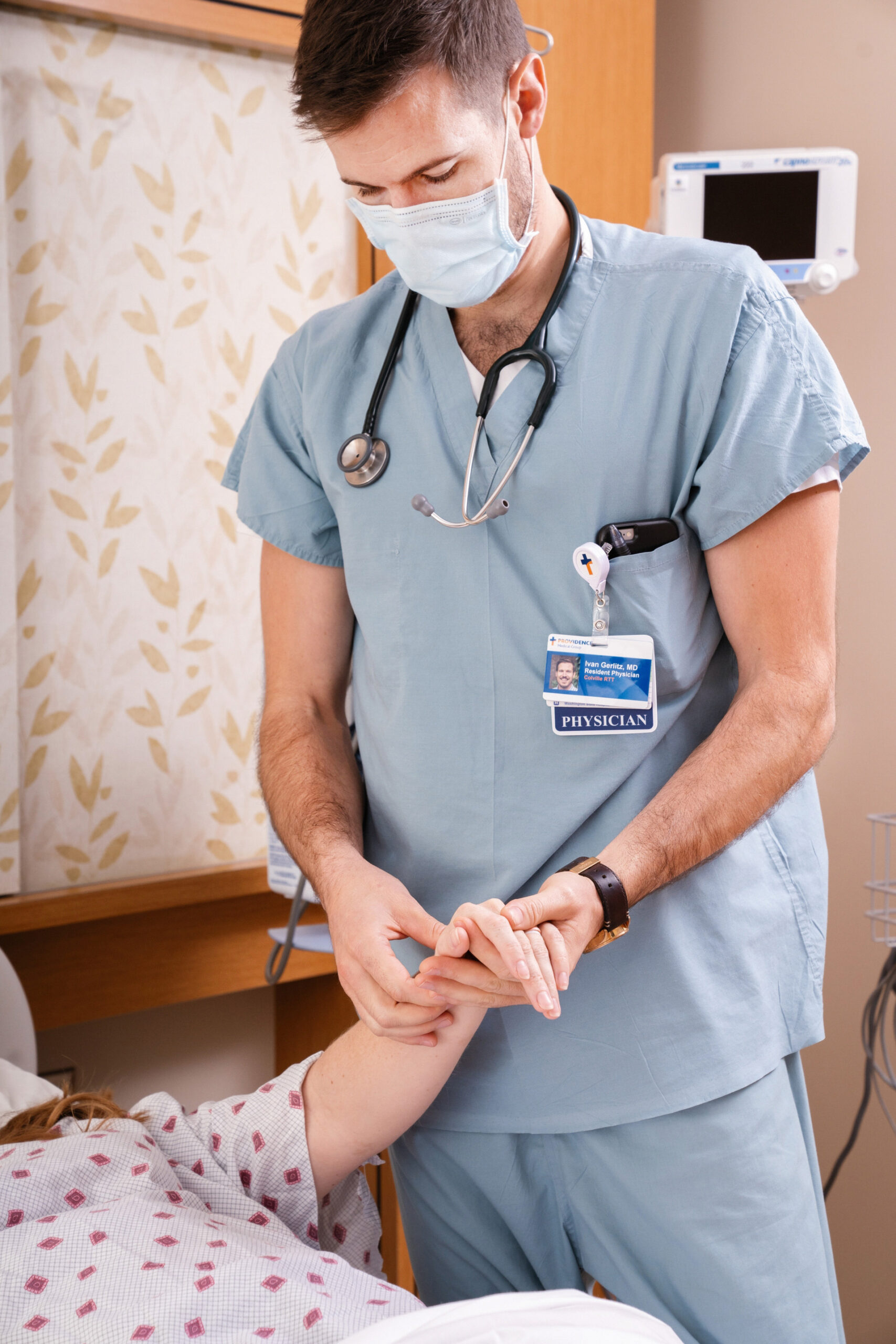Rural Training Track
Family Medicine Residency
Rural Training Track Curriculum
Family Medicine
Rural Training Track
Our Rural Training Track program located in Colville, Washington is a 1 plus 2 training program. This means that the first year is spent training in a large urban training program, while the second two years are spent training in the Colville rural environment. R1 residents are incorporated into the Spokane Family Medicine Residency Program and gain valuable friends and mentors in Spokane.
First Year:
A typical R1 block schedule looks like this:

Years Two and Three:
Residents move to Colville at the beginning of the R2 year. In Colville, residents participate in a longitudinal curriculum that cycles through a series of weekly ‘mini’ blocks. The mini blocks are: Hospital week, OB week, Specialty week and Ambulatory week. Highlights of the blocks include:
OB Week
Residents participate in all deliveries at the hospital during this week. That means they are triaging patients, managing labors, delivering babies vaginally and performing C-sections when needed. There is a lot of flexibility built into this week to accommodate the unpredictable nature of obstetrics. The residents use “flex time” to see patients in the ER, work on anesthesia procedures in the OR, see patients in clinic or work on quality improvement projects if the obstetric duties are light. There are an average of 4-5 deliveries per week.
Hospital Week
Residents work directly with the attending physician at Mount Carmel Hospital. Residents manage all aspect of care for their patients panel which varies by patient acuity and hospital capacity. Generally residents manage all patients in the critical care unit and several floor patients during the hospital week. Rounds are usually informal and follows a mentorship teaching paradigm.
Specialty Week
Residents cycle through orthopedics, general surgery, podiatry clinic and operating room time. Additionally residents participate in clinics with visiting cardiology, nephrology and dermatology on a regular basis. Residents also maintain time in their continuity clinic and occasional ER shifts during this week
Ambulatory Week
This is a continuity clinic and ER shift week. Residents maintain patient panels at the Colville, Chewelah, and Kettle Falls clinics. The home clinic is Colville, but residents gain exposure at the other clinics to provide variation in patient population and exposure to various preceptors.
Electives
Due to our very flexible longitudinal curriculum, we are uniquely suited to enable residents to further their training through elective away rotations. Residents have done trauma rotations at UW Harborview, international Obstetric rotations in developing countries, longitudinal emergency medicine rotations in Spokane in addition to others.
Other Educational Experiences:
Public Health Experience
The Northeast Tri-county Health District offers public health services to most of our region. A former RTT graduate is the Public Health Officer and our residents work closely with the Tri-County Health Department. Our residents provide medical services at the health department on a regular basis, including vasectomies and are often called to help with environmental health screenings and investigations. Most of our residents become involved in a community project designed to solve an identified issue or to enhance specific services in our community. In completing these projects our residents work in conjunction with public service organizations and/or local community associations while developing community leadership skills.
Focused Teaching
Colville residents have 4 hours of protected teaching time each week. The curriculum varies and includes self-directed learning, in person didactics and distance learning. Residents also attend general medical staff meetings at Mount Carmel Hospital and serve on various hospital committees depending on their interests.

